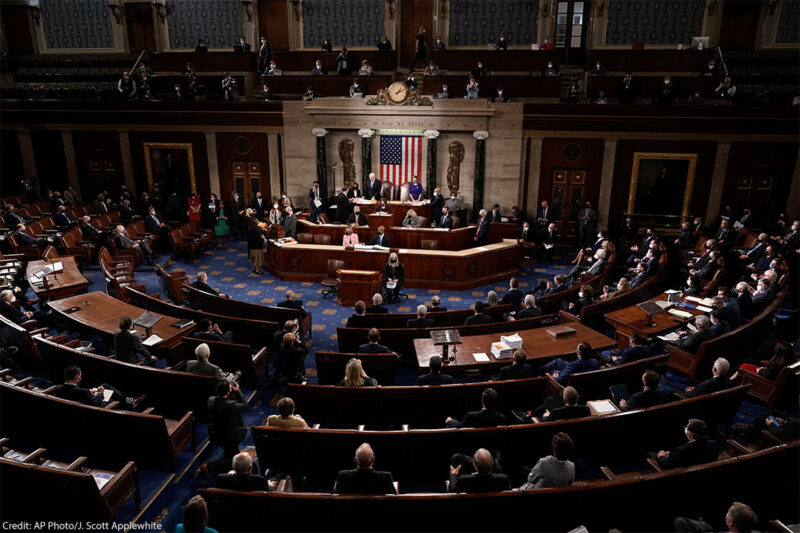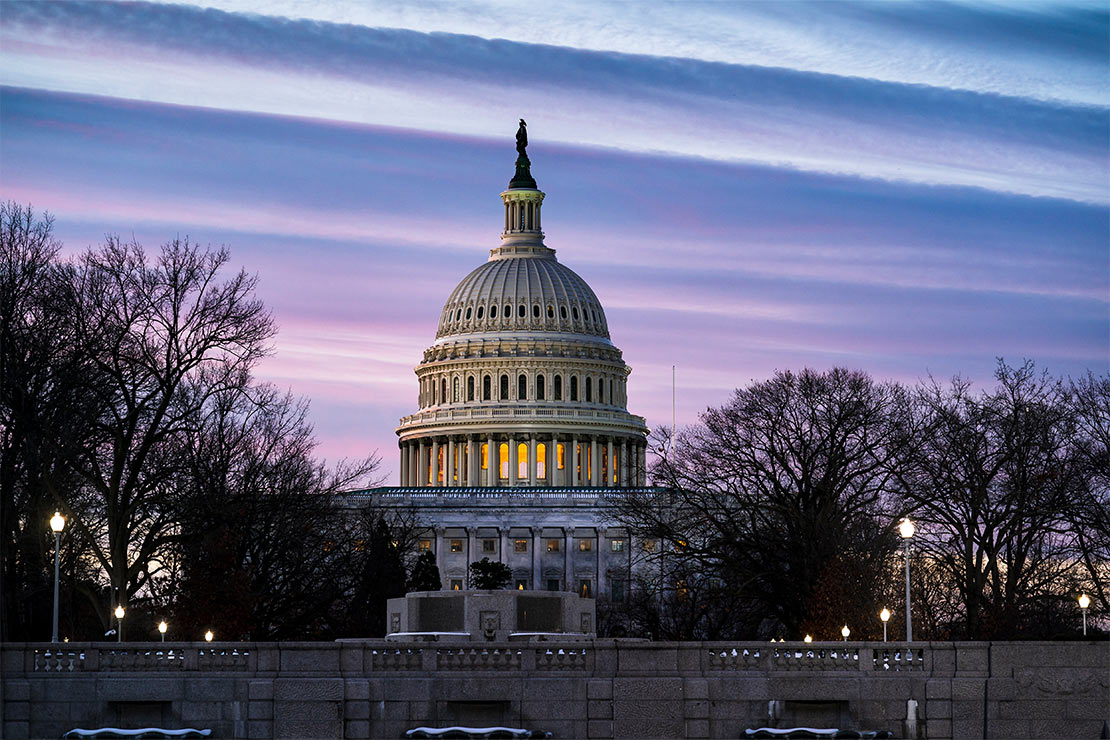Why the ACLU Supports the Electoral Count Reform Act


As we near the end of 2022 and the second anniversary of the insurrection at the U.S. Capitol, Congress has the opportunity to pass much-needed reforms to the Electoral Count Act of 1887. The Electoral Count Act governs the process of casting and counting the Electoral College votes for president and vice president.

Show Up for Civil Liberties: Donate Now.
From free speech to reproductive freedom to immigrants' rights, the ACLU has shown up for over 100 years to protect civil liberties and civil rights for all — and we won't stop now. to help fund critical litigation, advocacy, and grassroots efforts.
As the events of January 2021 made clear, the current law contains poorly drafted language governing critical aspects of the election certification process, leaving it vulnerable to exploitation. Attempting to take advantage of the ambiguities in the Electoral Count Act on January 6, the former president and his supporters asserted that the vice president could change the election outcome. This resulted in the worst attack on our Capitol since the British set it on fire in 1814.
The Electoral Count Act governs the process of casting and counting the Electoral College votes for president and vice president.
To fix the Electoral Count Act and provide much-needed clarity for the process of counting electoral votes, Sens. Susan Collins and Joe Manchin brought together a bipartisan group of senators over the past year to draft and introduce the this July. Under their leadership, this bill has secured wider bipartisan support, including Majority Leader Chuck Schumer and Minority Leader Mitch McConnell.

The U.S. Capitol building at dawn.
AP Photo/J. Scott Applewhite
The would ensure that the Electoral College votes tallied by Congress reflect the election results of each state’s popular vote for president. To do this, the bill provides some clarity on the roles and interactions between federal and state entities in this process. Specifically, the bill reiterates the role of the vice president is solely clerical and that they cannot unilaterally accept, reject, or adjudicate the validity of electors or electoral votes. The bill also raises the threshold for the required number of senators and representatives needed to object to electoral votes.
And to ensure that Congress can identify a single, conclusive slate of electors from each state, the Electoral Count Reform Act reiterates that electors must be appointed on Election Day and provides further definition of the narrow set of circumstances that are exceptions to this requirement.
As the events of January 2021 made clear, the current law contains poorly drafted language governing critical aspects of the election certification process, leaving it vulnerable to exploitation.
Because of the bipartisan stewardship of these members, reforming the Electoral Count Act is close to crossing the finish line of this Congress. In September, the Senate Rules Committee to pass the Electoral Count Reform Act out of committee, a necessary step before a full Senate vote can happen, in a bipartisan vote of 14-1. And earlier that month, the House of Representatives passed the in a bipartisan vote of 229-203. Introduced by Reps. Zoe Lofgren and Liz Cheney, the House bill reflects a similar general framework as the Senate legislation to update the Electoral Count Act, and is based on from the House Administration Committee, which is responsible for the oversight of federal elections and the day-to-day operations of the House of Representatives.
The Electoral Count Reform Act would ensure that the Electoral College votes tallied by Congress reflect the election results of each state’s popular vote for president.
These bipartisan, bicameral efforts to reform and modernize the Electoral Count Act by senators and representatives is a prime example of what elected officials can do when they work together. Every American should be confident that the presidential election results from their states will be honored. Reforming the Electoral Count Act is the first step toward repairing our democracy and ensuring a peaceful transfer of power, which is a cornerstone of American democracy.
It’s time for Congress to pass the Electoral Count Reform Act and address the vulnerabilities in our electoral system. We hope that members will continue their commitment to set aside their party differences in the new Congress, and work to preserve our democracy and protect the will of the American people by passing legislation to ensure access to and protect the right to vote.



